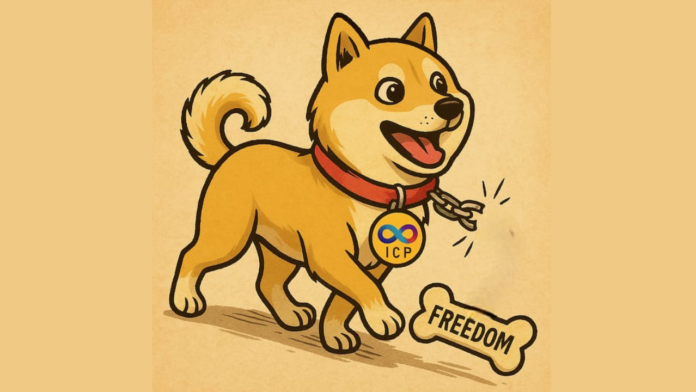ICP’s roadmap for 2025 introduces a significant step with the Meridian milestone, bringing Dogecoin into the fold. This development extends Chain Fusion to support Dogecoin, allowing canister smart contracts to hold and transfer the token, opening up DeFi possibilities that were previously out of reach for the meme coin.
Dogecoin, despite its origins as a lighthearted take on Bitcoin, has held strong in the crypto landscape with a devoted community and a sizable market cap. However, it has lacked smart contract functionality, limiting its use cases beyond simple transactions. The Internet Computer Protocol’s expansion aims to change that by giving Dogecoin a new layer of utility.
Chain Fusion has already demonstrated its capability by seamlessly integrating Bitcoin, bringing its decentralised features into the ICP ecosystem. The same principles are being applied to Dogecoin. With minimal additional effort required due to the structural similarities between Bitcoin and Dogecoin, this milestone is poised to bridge a gap that has long existed. Once in place, canister smart contracts on ICP will be able to interact directly with Dogecoin, making it possible to execute programmable transactions and enabling a new wave of decentralised applications to utilise the token.
This step aligns with ICP’s broader vision of an open internet that doesn’t rely on traditional cloud services. The integration of Dogecoin is another proof point of its capabilities, demonstrating that blockchain networks don’t have to remain siloed. Dogecoin holders will be able to leverage smart contracts, unlocking lending, staking, and other financial instruments that were previously exclusive to more advanced blockchains.
The move also brings implications for the Dogecoin community. While many have viewed Doge as primarily a fun, transactional token, this development expands its narrative, introducing a level of sophistication that could influence its adoption. By providing an avenue for Doge to be used in decentralised finance without altering its underlying structure, ICP offers a way to modernise its functionality without compromising its core ethos.
Security is a key component of this integration. ICP’s direct interaction with Bitcoin through threshold cryptography has already set a precedent for secure asset handling, and the same approach will be applied to Dogecoin. This ensures that Doge transactions remain trustless, verifiable, and resistant to centralised control, addressing concerns that often arise when bridging assets between blockchains.
The timing of this milestone is particularly interesting. Dogecoin’s popularity has historically surged in waves, often driven by social media trends and high-profile endorsements. By adding utility beyond speculation, this integration could provide a more stable foundation for its long-term value proposition. If Dogecoin can be used in DeFi applications on ICP, its role in the market could shift from being a meme-fuelled asset to a more functional digital currency.
For developers within the ICP ecosystem, this opens up new opportunities. DeFi applications that were previously limited to ICP and Bitcoin can now incorporate Dogecoin, potentially bringing in a fresh user base. Smart contract functionalities such as automated trading, decentralised lending, and liquidity pools could all incorporate Dogecoin, further expanding the appeal of both ICP and Doge.
ICP’s progress with Chain Fusion continues to challenge the limitations of blockchain interoperability. The idea that blockchains need to operate independently is becoming outdated, and this milestone reinforces the push toward seamless integration across networks. As ICP moves forward with its 2025 roadmap, the addition of Dogecoin could mark the beginning of a broader shift in how blockchains interact, breaking down barriers that have long defined the industry.
This is another step in demonstrating that decentralisation doesn’t have to mean isolation. The inclusion of Dogecoin in ICP’s ecosystem is a reminder that even assets that started as jokes can evolve when given the right infrastructure. With canister smart contracts now set to support Dogecoin transactions, the question is no longer whether Doge can do more, but how far it will go with these new capabilities.


